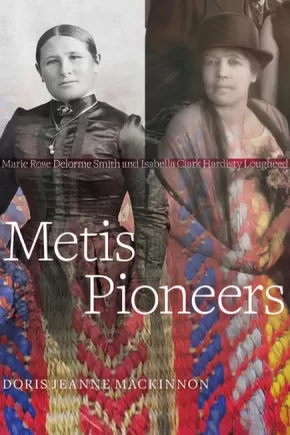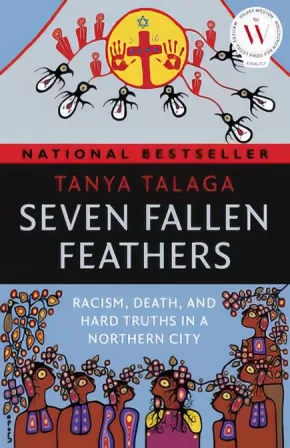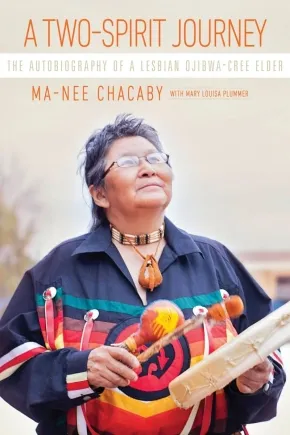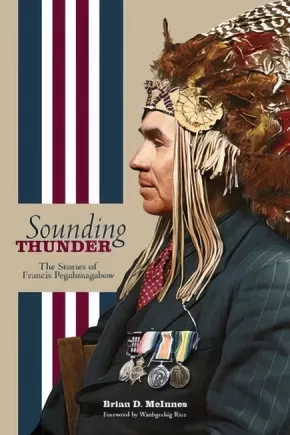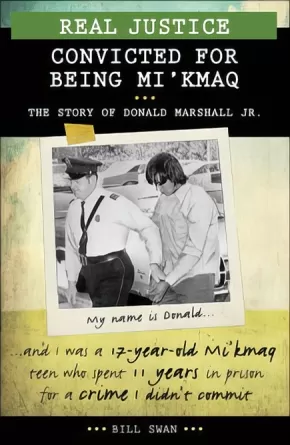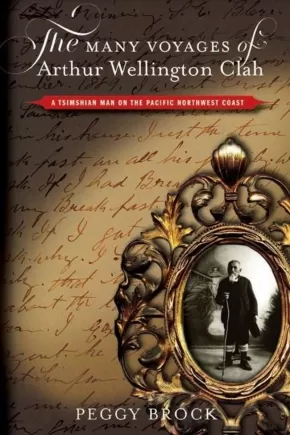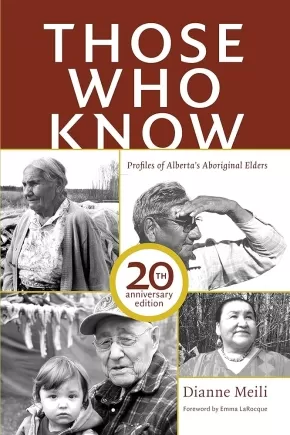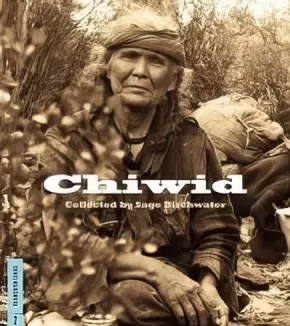Biographies
Synopsis:
After her critically acclaimed books of interviews with Afghan, Iraqi, Israeli and Palestinian children, Deborah Ellis turns her attention closer to home. For two years she traveled across the United States and Canada interviewing Native children. The result is a compelling collection of interviews with children aged nine to eighteen. They come from all over the continent, from Iqaluit to Texas, Haida Gwaai to North Carolina, and their stories run the gamut — some heartbreaking; many others full of pride and hope.
You’ll meet Tingo, who has spent most of his young life living in foster homes and motels, and is now thriving after becoming involved with a Native Friendship Center; Myleka and Tulane, young artists in Utah; Eagleson, who started drinking at age twelve but now continues his family tradition working as a carver in Seattle; Nena, whose Seminole ancestors remained behind in Florida during the Indian Removals, and who is heading to New Mexico as winner of her local science fair; Isabella, who defines herself more as Native than American; Destiny, with a family history of alcoholism and suicide, who is now a writer and powwow dancer.
Many of these children are living with the legacy of the residential schools; many have lived through the cycle of foster care. Many others have found something in their roots that sustains them, have found their place in the arts, the sciences, athletics. Like all kids, they want to find something that engages them; something they love.
Deborah briefly introduces each child and then steps back, letting the kids speak directly to the reader, talking about their daily lives, about the things that interest them, and about how being Native has affected who they are and how they see the world.
As one reviewer has pointed out, Deborah Ellis gives children a voice that they may not otherwise have the opportunity to express so readily in the mainstream media. The voices in this book are as frank and varied as the children themselves.
Educator Information
Recommended for ages 12 and up.
Curriculum Connections: English, Geography, Humanities and Social Studies, Indigenous Studies, Civics and Careers, History
Synopsis:
In Métis Pioneers, Doris Jeanne MacKinnon compares the survival strategies of two Métis women born during the fur trade—one from the French-speaking free trade tradition and one from the English-speaking Hudson’s Bay Company tradition—who settled in southern Alberta as the Canadian West transitioned to a sedentary agricultural and industrial economy. MacKinnon provides rare insight into their lives, demonstrating the contributions Métis women made to the building of the Prairie West. This is a compelling tale of two women’s acts of quiet resistance in the final days of the British Empire.
Reviews
"[These two women's] individual paths provide interesting parallel stories about Métis women who survived and thrived as the Canadian west transitioned from the fur trade to a more sedentary agricultural economy. Marie Rose’s family was French-speaking Métis and a few served as Louis Riel’s soldiers. Isabella was from the English-speaking Métis stock. Both were born in 1861 and both married non-Indigenous men in unions that were influenced, or arranged outright, by their families. Both families had a strong history in the fur trade; Marie Rose’s were free traders and Isabella as part of the Hudson’s Bay Company. Both were community builders who later relied on their influence and circle of acquaintances for support after they became widows and fell on hard times. And the stories of both women showed how the Métis people continued to make significant contributions to the Canadian west even after the fur trade ended, an area of historical study that MacKinnon thinks is rife for discovery...." — Eric Volmers, Calgary Herald
"MacKinnon's book offers readers an in-depth look at the contributions each of the two women made to the growth of Canada's west, but more than that, it is a book about courage, resilience, determination and strength of character. The book was written to tell the truth..." — John Copley, Alberta Native News
"Whether or not the two women were ever in the same room together, their individual paths provide interesting parallel stories about Métis women who survived and thrived as the Canadian west transitioned from the fur trade to a more sedentary agricultural economy…And the stories of both women showed how the Métis people continued to make significant contributions to the Canadian west even after the fur trade ended, an area of historical study that MacKinnon thinks is rife for discovery."— Eric Volmers, Strength and Resilience
"This book deals with the lives of two frontier women - Isabella Lougheed and Marie Rose Smith. They both were Métis but their histories were miles apart. ... The author has found a rich source of history in these two women and offers them in a detailed account of their lives." — Alberta History
Additional Information
584 pages | 6.00" x 9.00"
Synopsis:
In a series of inspirational profiles, Cora Voyageur celebrates 100 remarkable Indigenous Albertans whose achievements have enriched their communities, the province, and the world.
As a child, Cora rarely saw Indigenous individuals represented in her history textbooks or in pop culture. Willie Nelson sang “My Heroes Have Always Been Cowboys,” but Cora wondered, where were the heroes who looked like her? She chose the title of her book in response, to help reflect her reality.
In fact, you don’t have to look very hard to find Indigenous Albertans excelling in every field, from the arts to business and everything in between. Cora wrote this book to ensure these heroes receive their proper due.
Some of the individuals in this collection need no introduction, while others are less well known. From past and present and from all walks of life, these 100 Indigenous heroes share talent, passion, and legacies that made a lasting impact.
Read about:
- Douglas Cardinal, the architect whose iconic, flowing designs grace cities across Alberta, across Canada, and in Washington, DC,
- Nellie Carlson, a dedicated activist whose work advanced the cause of Indigenous women and the education of Indigenous children,
- Alex Janvier, whose pioneering work has firmly established him as one of Canada’s greatest artists,
- Moostoos, “The Buffalo,” the spokesperson for the Cree in Treaty 8 talks who fought tirelessly to defend his People’s rights,
- And many more.
Educator Information
Recommended in the Canadian Indigenous Books for Schools 2019-2020 resource list for grades 10 to 12 for these subject areas: English Language Arts, Social Studies.
This book focuses on Indigenous Albertans.
Additional Information
240 pages | 5.90" x 9.00"
Synopsis:
In 1966, twelve-year-old Chanie Wenjack froze to death on the railway tracks after running away from residential school. An inquest was called and four recommendations were made to prevent another tragedy. None of those recommendations were applied.
More than a quarter of a century later, from 2000 to 2011, seven Indigenous high school students died in Thunder Bay, Ontario. The seven were hundreds of miles away from their families, forced to leave home and live in a foreign and unwelcoming city. Five were found dead in the rivers surrounding Lake Superior, below a sacred Indigenous site. Jordan Wabasse, a gentle boy and star hockey player, disappeared into the minus twenty degrees Celsius night. The body of celebrated artist Norval Morrisseau’s grandson, Kyle, was pulled from a river, as was Curran Strang’s. Robyn Harper died in her boarding-house hallway and Paul Panacheese inexplicably collapsed on his kitchen floor. Reggie Bushie’s death finally prompted an inquest, seven years after the discovery of Jethro Anderson, the first boy whose body was found in the water.
Using a sweeping narrative focusing on the lives of the students, award-winning investigative journalist Tanya Talaga delves into the history of this small northern city that has come to manifest Canada’s long struggle with human rights violations against Indigenous communities.
A portion of each sale of Seven Fallen Feathers will go to the Dennis Franklin Cromarty Memorial Fund, set up in 1994 to financially assist Nishnawbe Aski Nation students’ studies in Thunder Bay and at post-secondary institutions.
Awards
- 2018-2019 First Nation Communities Read
- 2018 RBC Taylor Prize
Reviews
“Talaga has written Canada’s J’Accuse, an open letter to the rest of us about the many ways we contribute — through act or inaction — to suicides and damaged existences in Canada’s Indigenous communities. Tanya Talaga’s account of teen lives and deaths in and near Thunder Bay is detailed, balanced and heart-rending. Talaga describes gaps in the system large enough for beloved children and adults to fall through, endemic indifference, casual racism and a persistent lack of resources. It is impossible to read this book and come away unchanged.” — RBC Taylor Prize Jury Citation
“In Seven Fallen Feathers, Tanya Talaga delves into the lives of seven Indigenous students who died while attending high school in Thunder Bay over the first eleven years of this century. With a narrative voice encompassing lyrical creation myth, razor-sharp reporting, and a searing critique of Canada’s ongoing colonial legacy, Talaga binds these tragedies — and the ambivalent response from police and government — into a compelling tapestry. This vivid, wrenching book shatters the air of abstraction that so often permeates news of the injustices Indigenous communities face every day. It is impossible to read Seven Fallen Feathers and not care about the lives lost, the families thrust into purgatory, while the rest of society looks away.” — Hilary Weston Writers’ Trust Prize for Nonfiction Jury Citation
“[A]n urgent and unshakable portrait of the horrors faced by Indigenous teens going to school in Thunder Bay, Ontario, far from their homes and families. . . . Talaga’s incisive research and breathtaking storytelling could bring this community one step closer to the healing it deserves.” — Booklist, STARRED REVIEW
“Seven Fallen Feathers may prove to be the most important book published in Canada in 2017. Tanya Talaga offers well-researched, difficult truths that expose the systemic racism, poverty, and powerlessness that contribute to the ongoing issues facing Indigenous youth, their families, and their communities. It is a call to action that deeply honours the lives of the seven young people; our entire nation should feel their loss profoundly.” — Patti LaBoucane-Benson, author of The Outside Circle
“[W]here Seven Fallen Feathers truly shines is in Talaga’s intimate retellings of what families experience when a loved one goes missing, from filing a missing-persons report with police, to the long and brutal investigation process, to the final visit in the coroner’s office. It’s a heartbreaking portrait of an indifferent and often callous system . . . Seven Fallen Feathers is a must-read for all Canadians. It shows us where we came from, where we’re at, and what we need to do to make the country a better place for us all.” — The Walrus
Educator Information
The Canadian Indigenous Books for Schools list recommends this resource for Grade 12 English Language Arts and Social Studies.
Curriculum Connections: Indigenous Studies, History, Health
Additional Information
376 pages | 5.50" x 8.50" | 8-page colour insert and maps
Synopsis:
A compelling, harrowing, but ultimately uplifting story of resilience and self-discovery.
A Two-Spirit Journey is Ma-Nee Chacaby’s extraordinary account of her life as an Ojibwa-Cree lesbian. From her early, often harrowing memories of life and abuse in a remote Ojibwa community riven by poverty and alcoholism, Chacaby’s story is one of enduring and ultimately overcoming the social, economic, and health legacies of colonialism.
As a child, Chacaby learned spiritual and cultural traditions from her Cree grandmother and trapping, hunting, and bush survival skills from her Ojibwa stepfather. She also suffered physical and sexual abuse by different adults, and in her teen years became alcoholic herself. At twenty, Chacaby moved to Thunder Bay with her children to escape an abusive marriage. Abuse, compounded by racism, continued, but Chacaby found supports to help herself and others. Over the following decades, she achieved sobriety; trained and worked as an alcoholism counsellor; raised her children and fostered many others; learned to live with visual impairment; and came out as a lesbian. In 2013, Chacaby led the first gay pride parade in Thunder Bay.
Ma-Nee Chacaby has emerged from hardship grounded in faith, compassion, humour, and resilience. Her memoir provides unprecedented insights into the challenges still faced by many Indigenous people.
Awards
- 2025 Canada Reads winner
Reviews
“From groundbreaking and controversial AIDS awareness programs in the 1990s to the work she continues to do today, both with her own family and her extended reserve family, her life and this memoir ultimately serve as handbook of hope.” — Lara Rae, Winnipeg Free Press
"A Two-Spirit Journey is a raw and emotional story that doesn’t just show readers the author’s scars. Chacaby bares all in an honest telling of her life that includes flaws, like her struggles with substance abuse and a sometimes rocky path to sobriety. Despite the turmoil, the autobiography does have its uplifting moments and characters. Heartwarming stories of childhood friendships, and most importantly a powerful relationship between the author and her grandmother, weave feelings of optimism and hope into a life that is oftentimes surrounded by darkness.” — Scott Paradis, tbnewswatch.com
“An extraordinary account of an extraordinary life and very highly recommended for community and academic library Contemporary Biography, LGBT, and Native American Studies collections.” — Midwest Book Review
“Activist, survivor, mother, counsellor, Ma-Nee Chacaby recounts her sometimes harrowing life with a calm and steady voice, infused with resilience and compassion. Effectively designed and edited to appeal to both the general public and those engaged in Indigenous studies, A Two-Spirit Journey presents an important story, powerfully told.” — Nik Burton, Rick Walker, and Carolyn Wood, Judges, 2017 Manitoba Book Awards
“The story that Chacaby and Plummer recount is truly an extraordinary one, but it is also one that will resonate with many people whose stories have not been often told. The perspective of a lesbian Ojibwa-Cree elder is invaluable for LGBT Native youth and will be an enriching experience for many others, particularly those who have experienced abuse, disability, poverty, or the effects of colonization.” — Kai Pyle, Studies in American Indian Literatures
Educator Information
This book would be useful for courses in women's studies, social studies, and gender studies. Recommended for students in grade 12 or at a college/university level.
Caution: discussion of physical and sexual abuse.
This resource is also available in French: Un parcours bispirituel: Recit d'une ainee ojibwe-crie lesbienne.
Additional Information
256 pages | 6.00" x 9.00"
Synopsis:
Francis Pegahmagabow (1889–1952), a member of the Ojibwe nation, was born in Shawanaga, Ontario. Enlisting at the onset of the First World War, he became the most decorated Canadian Indigenous soldier for bravery and the most accomplished sniper in North American military history. After the war, Pegahmagabow settled in Wasauksing, Ontario. He served his community as both chief and councillor and belonged to the Brotherhood of Canadian Indians, an early national Indigenous political organization. Francis proudly served a term as Supreme Chief of the National Indian Government, retiring from office in 1950.
Francis Pegahmagabow’s stories describe many parts of his life and are characterized by classic Ojibwe narrative. They reveal aspects of Francis’s Anishinaabe life and worldview. Interceding chapters by Brian McInnes provide valuable cultural, spiritual, linguistic, and historic insights that give a greater context and application for Francis’s words and world. Presented in their original Ojibwe as well as in English translation, the stories also reveal a rich and evocative relationship to the lands and waters of Georgian Bay.
In Sounding Thunder, Brian McInnes provides new perspective on Pegahmagabow and his experience through a unique synthesis of Ojibwe oral history, historical record, and Pegahmagabow family stories.
Awards
- Fred Landon Award, Ontario Historical Society (2018)
- American Book Award, Before Columbus Foundation (2017)
“Debwemigad Nimkiig gaye Aadizookanag zhawenimaawaad. Brian McInnes has clearly been blessed by the Thunders and Great Storytellers. With Sounding Thunder he has achieved the perfect balance of personal memoir and scholarly inquiry. He shares with readers the stories that have connected one generation to another and in these cycles we find the truth about living. Dibaajimowinan omaada’oozhinang mii igo aanikoobijige.” – Margaret Ann Noodin, Assistant Professor, Department of English, University of Wisconsin
“Sounding Thunder is invaluable for those working in biographical, historical, Indigenous, military and political studies and the general reader. McInnes skillfully contextualizes his subject as one of Canada’s greatest war heroes as well as a member of his family, community, and Anishinaabe people.” – Brock Pitawanakwat, Assistant Professor, Department of Indigenous Studies, University of Sudbury
“Brian McInnes’ book is both elegant and masterful in its weaving of language, spirituality, storytelling, family, community, and physical place on the lands and waters of Georgian Bay as he presents the world and life of his great-grandfather, Francis Pegahmagabow. McInnes’ presentation of family stories in both Ojibwe and English, and his placement of them within their historical and geographical context, underlines Waubgeshig Rice’s claim in his foreword to Sounding Thunder that the book will remain ‘a vital resource for generations to come.’” – Jurors, Fred Landon Award, Ontario Historical Society
This book would be useful for social studies and history courses for students in grades 11 and 12 or at a college/university level.
240 pages | 6.00" x 9.00" | 31 b&w illustrations | 5 b&w tables | bibliography
Synopsis:
“The Gabriel Dumont Institute Press is pleased to be able to preserve and share Jeanne Pelletier’s work and life story through Let Me See Your Fancy Steps—Story of a Métis Dance Caller. The Story of Jeanne Pelletier as told to Sylvie Sara Roy and Wilfred Burton. Jeanne’s achievement as the first female Métis dance caller is, of course, about Métis dance, but it is also about the determination of a young Métis girl who achieves her dream to become a dance caller during a time when this was only done by men.”
This resource includes dance calls for 16 dances and is accompanied by the instructional DVD All My Relations which features dance company V’ni Dansi which is led by renowned dancer and artistic director, Yvonne Chartrand.
Reviews
"The recounting of Jeanne’s work is supplemented throughout the book by testimonials of her former dance students and community members, all of whom praise the dance caller for the substantial impact that she’s had both on their personal lives, as well as the academic and social climates of the Métis community in Saskatchewan. As a Métis myself, I feel lost at times, as if my culture is fuzzy or foreign to me. Reading the life experiences, knowledge, and not to mention the wealth of Métis Jig steps found in this book gave me an overwhelming sense of peace to see research of this caliber and this level of care being invested in my culture. I would highly recommend this book to anyone with an interest in Métis culture and the significance that the jig has to the culture. Anyone who has seen the Métis Jig performed live knows that it is a beautiful and awe-inspiring dance, but after reading Jeanne’s explanations of the cultural significance of the dances, I will now appreciate the dance that much more as a story and celebration of my culture. It is also worth mentioning that entire dance sequences are written out to follow with Jeanne’s notes, and the book includes an instructional DVD." - Ben Charles for SaskBook Reviews
Educator Information
Recommended by Gabriel Dumont Institute for Secondary/Post Secondary/Adult.
Includes a DVD.
Recommended in the Canadian Indigenous Books for Schools 2019-2020 resource list as being useful for grades 5-12 with regard to these subjects: English Language Arts, Physical Education, Social Studies, Teacher Resource.
Synopsis:
In Indigenous cultures, elders serve as a bridge across time: they are connected to the past, they live in the present and they offer wisdom for the future. In these fascinating biographical essays, twelve First Nation and Native American elders share stories from their lives and tell what it was like to live in a time before television, cell phones and video games. Their stories explain how their humble childhoods shaped the adults they became and the lessons they share as elders. All the elders profiled work to ensure that their Native culture is passed down to members of their tribe. Settle in with this book and “listen” to the stories of these elders’ lives. As you take in their history, you just might gain wisdom that could make a difference in your own life.
Educator & Series Information
This book is part of the First Nations Series for Young Readers. Each book is a collection of biographies of First Nations, Métis, and Inuit women and men who are leaders in their fields of work, in their art, and in their communities.
For ages 9-14.
Additional Information
128 pages | 6.00" x 9.00"
Synopsis:
When a black teen was murdered in a Sydney, Cape Breton park late one night, his young companion, Donald Marshall Jr., became a prime suspect. Sydney police coached two teens to testify against Donald which helped convict him of a murder he did not commit. He spent 11 years in prison until he finally got a lucky break. Not only was he eventually acquitted of the crime, but a royal commission inquiry into his wrongful conviction found that a non-aboriginal youth would not have been convicted in the first place. Donald became a First Nations activist and later won a landmark court case in favour of native fishing rights. He was often referred to as the "reluctant hero" of the Mi'kmaq community.
Reviews
"Bill Swan presents a straightforward, compelling narrative, easily followed, that will astound today's teenagers." — Joan Marshall, Resource Links
"the important subject matter, meticulous research, and ultimately balanced portrait of the flawed man Marshall was makes this an engrossing and enlightening read for curious teens."— CM: Canadian Review of Materials
"Much of this disturbing but well-researched book is impressively drawn directly from court documents and is part of the valuable Real Justice series, which features wrongfully accused Canadian youth and their fight for freedom."— Booklist Online
Educator Information
Interest age: From 13 To 17
Fry Reading Level [grade]: 5.0
Lexile Reading Level: HL770L
Additional Information
184 pages | 5.50" x 8.50"
Synopsis:
A celebration of ten writers who have challenged stereotypes, told history from a perspective often silenced, and entertained millions of readers.
Included is author Louise Erdrich, whose novel Love Medicine was the first in an award-winning series about the lives of several generations of Ojibwa families. Sherman Alexie, author of the semi-autobiographical The Absolutely True Diary of a Part-Time Indian, went on to win the National Book Award. Tomson Highway broke new ground with his play The Rez Sisters. Joseph Boyden based his novel Three Day Road in part on his grandfather’s experience fighting in the First World War. N. Scott Momaday re-wrote the history of the American West with his book House Made of Dawn. Nicola Campbell drew on her family’s experience of residential schools to write the children’s books Shi-shi-etko and Shin-chi’s Canoe. Also included are Marilyn Dumont (A Really Good Brown Girl), Tim Tingle (Walking the Choctaw Road), Joseph Bruchac (Buffalo Song), and Maria Campbell (Half-breed).
The full list of writers profiled:
• Sherman Alexie (Spokane/Coeur d’Alene, Washington) - The Absolutely True Diary of a Part-Time Indian
• Louise Erdrich (Ojibwa, North Dakota) - Love Medicine (the Argus Series)
• Joseph Boyden (Cree/Métis, Ontario) - Three Day Road
• N. Scott Momaday (Kiowa/Cherokee, Oklahoma) - House Made of Dawn
• Marilyn Dumont (Cree/Métis, Alberta) - A Really Good Brown Girl
• Tomson Highway (Cree, Manitoba) - The Rez Sisters
• Joseph Bruchac (Abenaki, New York State) - Buffalo Song
• Maria Campbell (Métis, Saskatchewan) - Halfbreed
• Nicola Campbell (Interior Salish/Métis, Alberta) - Shin-chi’s Canoe
• Tim Tingle (Choctaw, Texas) - Walking the Choctaw Road
Educator & Series Information
This book is part of the First Nations Series for Young Readers. Each book is a collection of biographies of First Nations, Métis, and Inuit women and men who are leaders in their fields of work, in their art, and in their communities.
For ages 9-14.
Additional Information
128 pages | 6.00" x 9.00"
Synopsis:
First-hand accounts of Indigenous people’s encounters with colonialism are rare. A daily diary that extends over fifty years is unparalleled. Based on a transcription of Arthur Wellington Clah’s diaries, this book offers a riveting account of a Tsimshian man who moved in both colonial and Aboriginal worlds. From his birth in 1831 to his death in 1916, Clah witnessed profound change: the arrival of traders, missionaries, and miners, and the establishment of industrial fisheries, wage labour, and reserves. His many voyages – physical, cultural, and spiritual – provide an unprecedented Aboriginal perspective on colonial relationships on the Pacific Northwest Coast.
Drawing on a painstaking transcription of Arthur Wellington Clah’s diaries, Peggy Brock pieces together the many voyages -- physical, cultural, intellectual, and spiritual -- of a Tsimshian man who moved in both colonial and Aboriginal worlds. Clah’s birth in 1831 coincided with the establishment of a permanent fur trade post, and he became student, teacher, and confidant to missionary William Duncan. Later, Clah’s spiritual voyage into the world of colonial culture transformed him into a devout Christian and an evangelist for the faith.
From the goldfields of BC and Alaska to the hop fields of Washington State, Clah witnessed profound change. His diaries reveal the complexities of personal interactions between colonizers and the colonized and the inevitable tensions within a community undergoing rapid change. They also show how Clah’s hopes for his people were gradually eroded by the realities of land dispossession, interference by the colonial state in cultural and political matters, and diminishing economic opportunities.
Taken together, Clah’s many voyages offer an unprecedented Aboriginal perspective on colonial relationships as they played out on the Pacific Northwest Coast.
This book is required reading for students and scholars of indigenous peoples and colonialism and anyone interested in BC or Canadian history.
Reviews
"The Many Voyages of Arthur Wellington Clah is a striking book offering an on-the-ground viewpoint of colonialism as it evolved on the Pacific Northwest Coast of Canada." - Susan Neylan, Wilfrid Laurier University, Journal of Colonialism and Colonial History, V. 13, No 2, Fall 2012
"A fascinating account...Peggy Brock has made a truly significant contribution to our understanding of the history of the northwest coast in the nineteenth century." - Robin Fisher, Mount Royal University, International Journal of Maritime History, Vol XXIV No 3
"Arthur Wellington Clah’s diary is likely the most remarkable document to come into the light of Pacific Northwest Coast history ... Surmounting the challenges presented by this rich and at times near impenetrable personal record, Peggy Brock has researched and admirably summarized fifty years of the diary, pulling out key themes and highlighting its many contradictions. This much-needed introduction to a man and an indigenous history of British Columbia and Alaska will change the way we think about our past." - John S. Lutz, author of Makúk: A New History of Aboriginal-White Relations
Clah’s life and diary offer a window into the lives of the Tsimshian political hierarchy of the time and Tsimshian society’s interaction with colonialism ... His voyage is a metaphor for the voyage that his own and other indigenous people were also taking in their encounters with colonialism." - Neil Sterritt, consultant in Aboriginal leadership and governance
Additional Information
324 pages | 6.00" x 9.00" | 19 photographs, 4 maps | Paperback
Synopsis:
The elders in Those Who Know have devoted their lives to preserving the wisdom and spirituality of their ancestors. Despite insult and oppression, they have maintained sometimes forbidden practices for the betterment of not just their people, but all humankind. First published in 1991, Dianne Meili’s book remains an essential portrait of men and women who have lived on the trapline, in the army, in a camp on the move, in jail, in residential schools, and on the reserve, all the while counselling, praying, fasting, healing, and helping to birth further generations. In this 20th anniversary edition of Those Who Know, Meili supplements her original text with new profiles and interviews that further the collective story of these elders as they guide us to a necessary future, one that values Mother Earth and the importance of community above all else.
Additional Information
312 pages | 6.00" x 9.00" | Paperback
Synopsis:
Like the other books in the First Nations Series for Young Readers, this book offers ten short and engaging biographies of First Nations/Native activists who advocate not only for the environment but for Native rights. Their stories are full of highs and lows, triumphs and setbacks. Environmental trailblazers, these men and women are role models for children everywhere.
The men and women profiled here are united by their work to protect the environment and to support indigenous rights. Their stories take us from the Arctic National Wildlife Refuge in Alaska to the Black Mesa in Arizona.
Melina Laboucan-Massimo uses her passion to stop oil extraction in Alberta’s tar sands.
Winona LaDuke is a voice for reclaiming Native lands, advocating renewable energy resources, and protecting Native cultures.
Clayton Thomas-Muller is a dynamic advocate for indigenous self-determination and campaigner against tar sands extraction.
Ben Powless brings his youthful energy and skills to addressing climate change issues.
Tom Goldtooth protects sacred sites and organizes global direct-action campaigns for the environment.
Grace Thorpe is a grandmother who dedicated her retirement years to keeping Native reservations from becoming nuclear waste dumps.
Sarah James is a voice from northern Alaska defending the Porcupine caribou herd and the Arctic National Wildlife Refuge.
Enei Begaye & Evon Peter are married activists who work as a team on environmental issues and sustainable strategies for Native people.
Klee Benally uses the media to empower Native communities in their fight for environmental justice.
Teague Allston works to ensure a tribal voice is heard in Washington DC.
Reviews
"These short biographies of environmentalists are sure to engage a whole classroom of readers. From the focus on a particular environmental crisis, to a description of each person's native heritage, to the writing style and level, the stories are accessible to readers young and old." — Canadian Teacher Magazine, March 2012
Educator & Series Information
This book is part of the First Nations Series for Young Readers. Each book is a collection of biographies of First Nations, Métis, and Inuit women and men who are leaders in their fields of work, in their art, and in their communities. For ages 9-14.
Additional Information
128 pages | 6.00" x 9.00"
Synopsis:
Music is their passion. Follow the journeys of ten talented musicians from the Native community as they make their way to the top. All of them, whether their music is traditional drumming or mainstream rock, bring their own cultural traditions to their music.
Rising stars Shane Yellowbird and Crystal Shawanda are steeped in country music. The Blackfire band combines punk rock with Dine’ music, while Four Rivers Drum has been drumming at powwows for more than fourteen years. Leela Gilday is an award-winning folk artist and Michael Bucher's music protects sacred sites. Contrast classical guitarist Gabriel Ayala with rock guitarist Mato Nanji and learn about the talents of jazz vocalist Jamie Coon and Native American flutist Mary Youngblood.
Educator & Series Information
This book is part of the First Nations Series for Young Readers. Each book is a collection of biographies of First Nations, Métis, and Inuit women and men who are leaders in their fields of work, in their art, and in their communities.
For ages 9-14.
Additional Information
128 pages | 6.00" x 9.00"
Synopsis:
Chiwid was a Tsilhqot'in woman, said to have shamanistic powers, who spent most of her adult life "living out" in the hills and forests around Williams Lake, BC. Chiwid is the story of this remarkable woman told in the vibrant voices of Chilcotin oldtimers, both native and non-native.
Reviews
"Chiwid was a Chilcotin woman who lived outside, self-sufficiently for most of her life and moving camps with the seasons. Chiwid is a collection of oral histories about the woman, her family and what life was like in the Chilcotin area of British Columbia in the early to mid-1900s." - The Association of Book Publishers of BC. BC Books for BC Schools. 2009-2010.
Additional Information
128 pages | 8.00" x 9.00"
Authenticity Note: This book's author is not Indigenous; however, the book has the Authentic Indigenous Text label because it contains stories collected by the author from Indigenous and non-Indigenous peoples. It is up to readers to determine if this book will work as an authentic text for their purposes.



